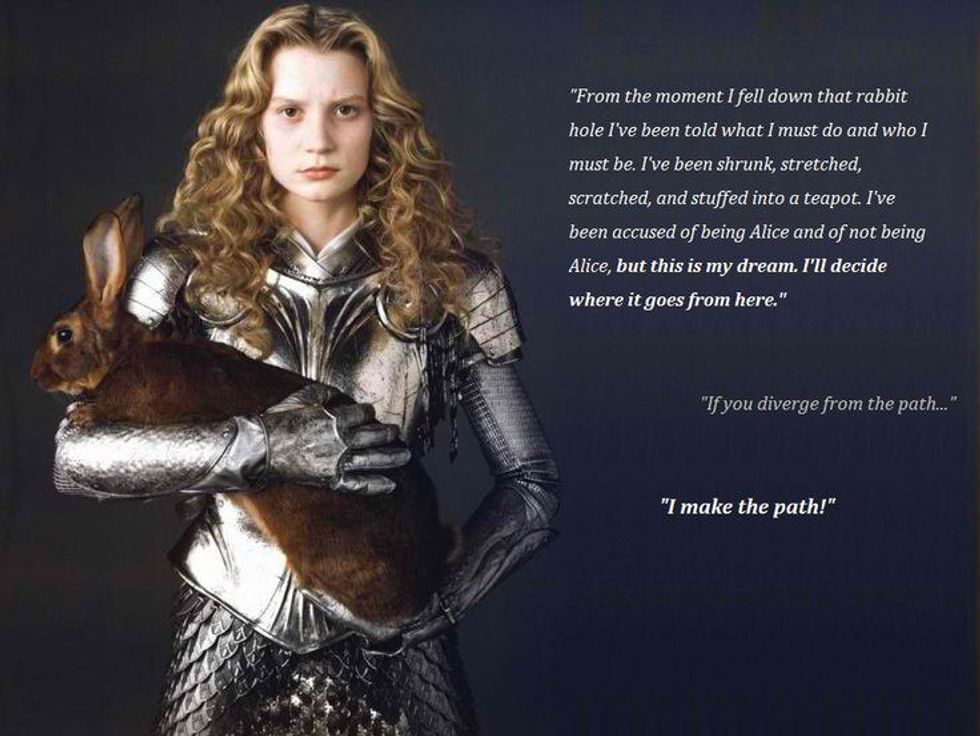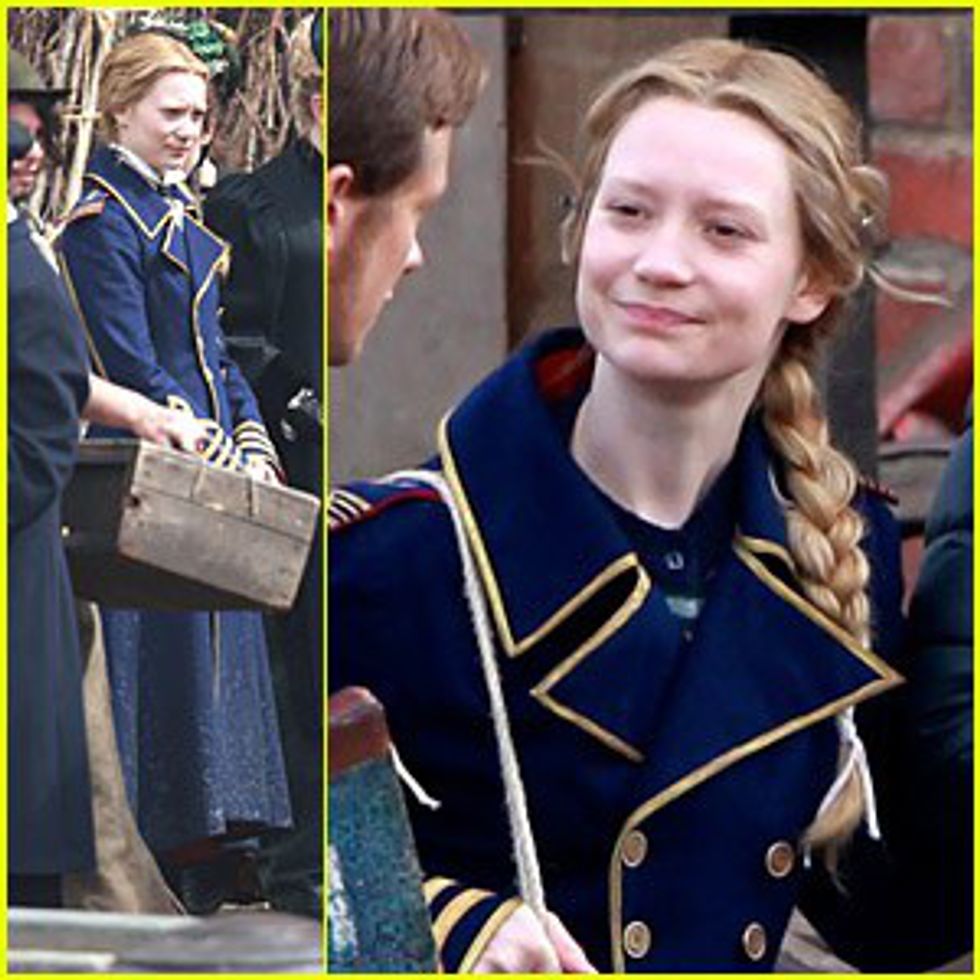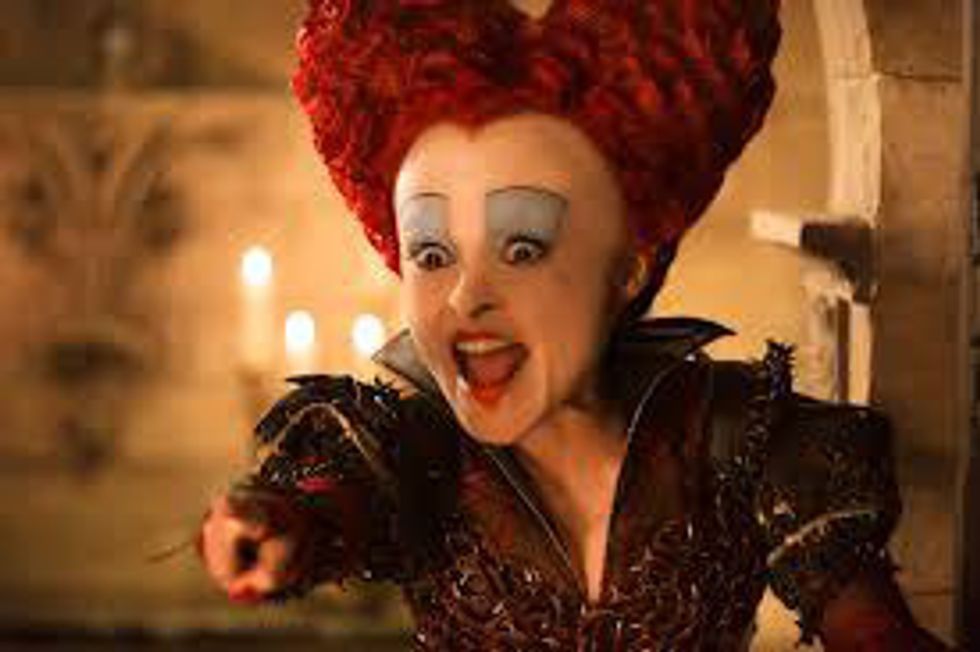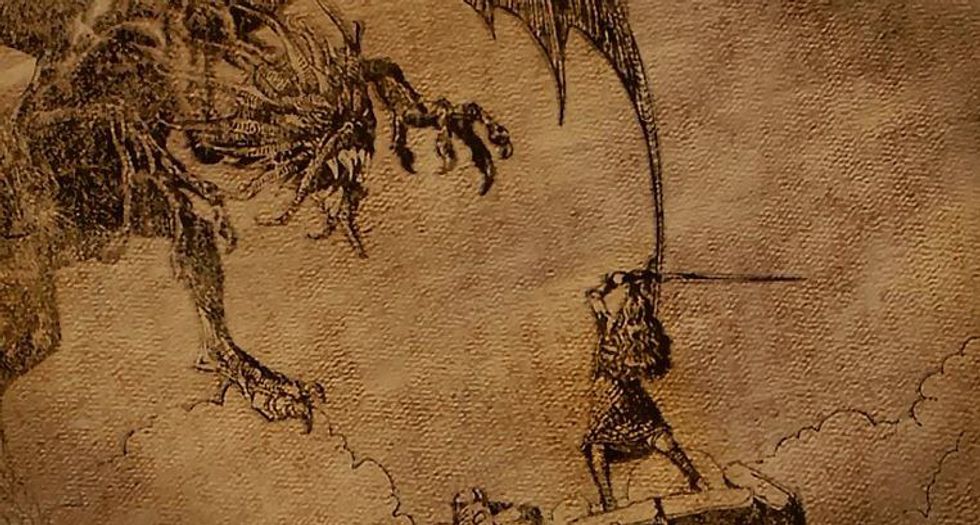While no movie is perfect, and the feminism behind the live action "Alice In Wonderland" movies isn’t exactly intersectional, it is refreshing to see how many aspects are…well, refreshing. In a feminist way.
Right off the bat Alice doesn’t conform to her mother’s expectation of wearing a corset in a super clever way. Yep, in only the second scene this movie saying something. She brings up a good point. “Who’s to say what’s proper?” Anyone and no one, Alice. Wear what you want.
It’s almost a Disney feminist cliché at this point, but it’s still worth mentioning: Alice rejects a marriage because it just wasn’t for her. I mean, her engagement was so expected of her that she unknowingly went to her own huge surprise engagement party. A giant crowd watched her proposal. Did Alice let all that pressure get to her? Nope.
The premise of the first movie is that Alice is the “wrong Alice” upon her needed arrival at Wonderland, or rather she’s “not hardly Alice.” Yet, throughout the movie she becomes more and more of the “right Alice.” So what changed? Alice goes from only really observing the odd circumstances of Wonderland to making her own plans, standing up to those who unfairly contradict her, and becoming much more “muchier.” She of course takes this back to the real world. A heroine who stands up and takes responsibility for her story can certainty be a good role model for the little girls watching.
But wait, you ask, “Do we get to see our heroine in traditionally men-style clothing?” Hell yes. And she looks fantastic. “But does she do typically male jobs? Especially for her Victorian times? Like running a business and being a the captain of a ship? Also, yes.” Dismantle that patriarchy.
And just as refreshing, neither of the movies’ plots revolve around a love interest. It’s unnecessary to make things interesting. It’s just queens, animals, and friendship.
Likewise a female villain doesn’t do her evil because of some revenge scheme involving a failed romance, or not being as young and pretty as the heroine. The Red Queen can be evil for plenty of other reasons, and she is. All is revealed in the sequel's backstories.
Speaking of queens. Queens! How many main stream media franchises are matriarchal? Not many.
In the sequel, does Alice face people challenging her career because she's a women? Absolutely. Yet, when she faces any issue of oppression it doesn’t take over the movie’s plot, or her sense of self-confidence. A man is being a totally entitled jerk? Whatever, she’s just going to chill in Wonderland for a while before she’s ready to deal with your sass.
Can we talk about the knight slaying the dragon to save a princess, cliqué? Because she literally slayed a Jabberwocky, a very dragon-like creature, as a knight. No damsel in distress here.
I’ll leave you with a quote from the White Queen that sum up a feminist message to Alice pretty nicely, “Don’t live your life to please others.” Be like Alice instead.











 mr and mrs potato head
StableDiffusion
mr and mrs potato head
StableDiffusion












